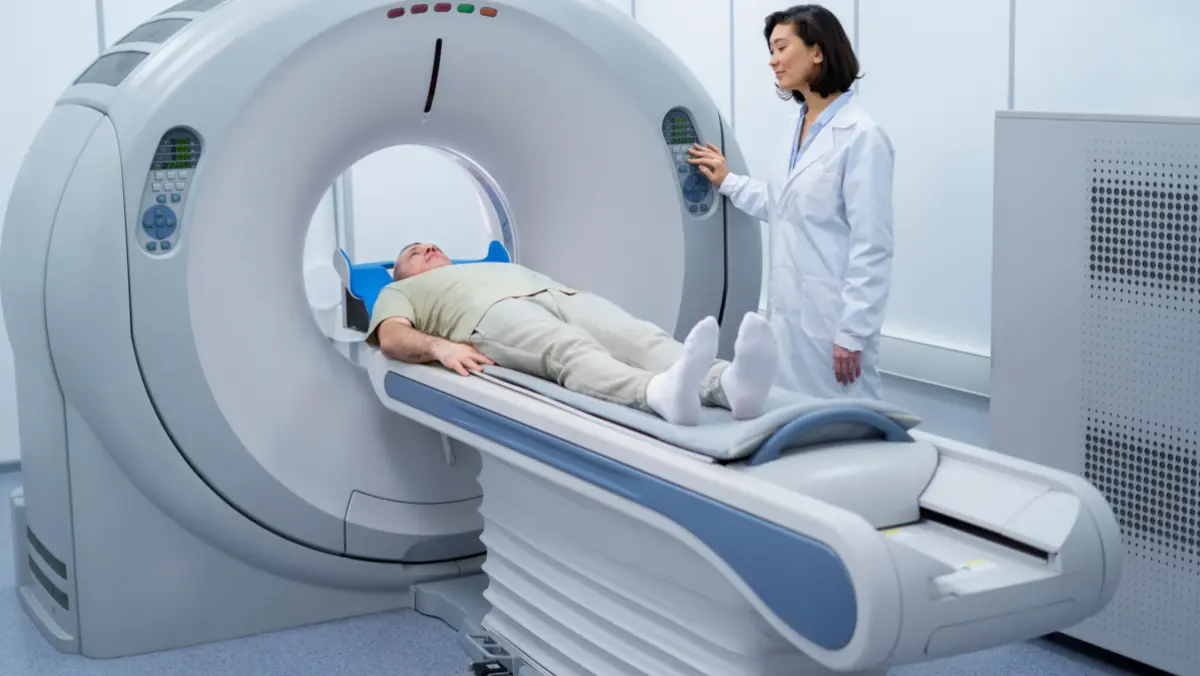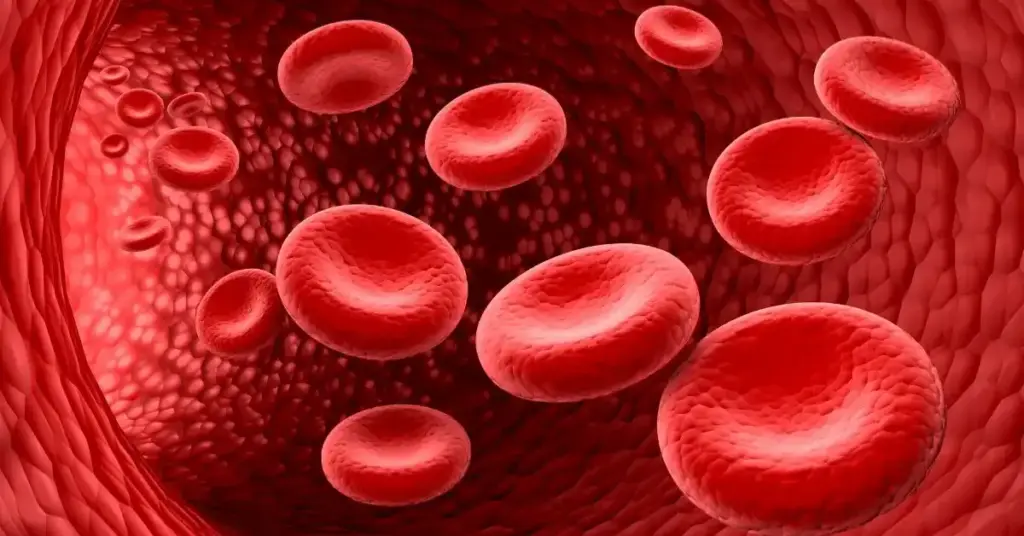
Medical oncology is a specialized branch of medicine focused on the diagnosis, treatment, and management of cancer using non-surgical methods. It involves the use of chemotherapy, immunotherapy, hormone therapy, and targeted therapy to combat cancer cells at the molecular and systemic levels. This field plays a pivotal role in comprehensive cancer care, working in tandem with surgical and radiation oncology. Medical oncologists serve as key coordinators in the continuum of care, tailoring individualized treatment plans for patients across various cancer types.
With the global burden of cancer rising, the importance of medical oncology continues to grow, offering hope through advancements in pharmacology and precision medicine. The field is grounded in evidence-based practices, continually evolving through clinical research and drug development. Through early detection and timely interventions, medical oncology significantly improves survival rates and enhances patients’ quality of life across all stages of cancer.
Medical oncology emerged as a distinct specialty in the mid-20th century, coinciding with the development of chemotherapeutic agents capable of targeting malignant cells. Initially focused on hematologic malignancies, the field rapidly expanded with the advent of solid tumor therapies and systemic treatments. Today, medical oncology plays a central role in integrated cancer care, bridging diagnostics, therapeutic planning, and post-treatment surveillance.
It encompasses a wide array of responsibilities that go beyond prescribing medication. These include genetic counseling, assessing risk factors, and overseeing palliative care in advanced disease stages. Medical oncologists work closely with multidisciplinary teams, integrating radiology, pathology, and surgery to formulate comprehensive treatment strategies.
The scope continues to widen with the rise of personalized medicine, making medical oncology one of the most impactful domains in modern healthcare.
Medical oncology is structured into specialized divisions to cater to the complexity and diversity of cancers, allowing for focused expertise and individualized treatment strategies. These divisions are often categorized based on the type of cancer or the treatment methodology applied.
Organ-based divisions are the most common and include dedicated teams for breast, lung, gastrointestinal, genitourinary, hematologic, and gynecologic cancers. Each team specializes in specific tumor biology, treatment algorithms, and response evaluation protocols. This targeted approach ensures that patients receive the most effective therapies for their particular diagnosis.
Functionally, medical oncology also divides into:
These divisions foster subspecialization, allowing oncologists to remain at the forefront of innovation and disease-specific developments. Additionally, centers often establish tumor boards where experts from each division collaborate, ensuring a holistic approach to each patient’s care plan.
Medical oncologists undergo extensive training, combining deep scientific knowledge with practical clinical experience. Their journey typically begins with a medical degree, followed by residency in internal medicine and subsequent fellowship training in oncology. This rigorous pathway ensures they are equipped to diagnose a wide range of cancers and deliver advanced treatment regimens.
Medical oncology fellowships provide exposure to:
Beyond technical proficiency, oncologists cultivate critical soft skills such as communication, empathy, and decision-making under uncertainty. They are trained to counsel patients through emotionally difficult diagnoses and manage long-term survivorship care.
Continuing education is also a crucial part of their expertise. Many medical oncologists participate in academic research, publish in peer-reviewed journals, and attend international conferences to stay updated on the latest breakthroughs. Some even pursue dual training in hematology or palliative medicine to offer more comprehensive care.
This high level of expertise is what enables medical oncologists to guide patients through complex cancer journeys with clarity and precision.
Medical oncology is experiencing a renaissance through cutting-edge therapies that go beyond traditional chemotherapy. These emerging treatments are reshaping how cancers are managed, offering higher efficacy with fewer side effects. Targeted therapy, for instance, involves drugs that interfere with specific molecules involved in cancer growth and progression.
Immunotherapy, a groundbreaking development, empowers the immune system to recognize and destroy cancer cells. Checkpoint inhibitors and CAR T-cell therapies have shown remarkable success in treating previously refractory cancers. Another innovation is tumor-agnostic treatment, where therapy is chosen based on genetic mutations rather than tumor location.
Precision oncology uses genomic profiling to design customized treatment regimens, matching the drug to the tumor’s specific genetic alterations. These innovations are made possible by large-scale cancer genome mapping projects and AI-assisted analytics.
These therapies are currently being incorporated into mainstream care protocols and are especially promising for metastatic and treatment-resistant cancers, signaling a new era of hope in oncology.
State-of-the-art facilities play a crucial role in the delivery of high-quality medical oncology care. Advanced infrastructure not only enhances diagnostic accuracy but also ensures the safe administration of complex therapies. Modern oncology centers are equipped with integrated systems for drug preparation, infusion, and patient monitoring, reducing complications and ensuring precision.
A comprehensive medical oncology facility typically includes:
Patient-centric facilities like nutrition counseling, psychological support services, and pain management clinics further enhance the overall cancer care experience. Digital health tools such as treatment tracking apps and teleconsultation platforms are also integrated for convenience and continuity.
Such infrastructure allows oncologists to deliver complex, multidisciplinary care under one roof, enabling timely interventions and better coordination between departments. Well-equipped facilities are foundational to achieving successful outcomes in medical oncology and promoting patient safety at every stage of treatment.
Medical oncology stands at the forefront of modern cancer care, blending science, compassion, and innovation to fight one of the most formidable diseases of our time. With its focus on systemic treatments, early detection, and long-term disease management, it plays a pivotal role in improving survival rates and enhancing patients’ quality of life. The field continues to evolve rapidly, driven by research and personalized medicine. Choosing a facility with skilled oncologists and advanced treatment options is essential for navigating the complexities of cancer care.
At Kannappa Memorial Hospital, the medical oncology team is committed to delivering precision-driven, empathetic care using state-of-the-art technologies and a patient-first approach. From initial diagnosis to post-treatment monitoring, every step is handled with utmost dedication and expertise. By combining knowledge with cutting-edge therapies and holistic support, medical oncology offers not just treatment—but a pathway to healing and hope for those affected by cancer.
Medical oncology is a specialized branch of medicine focused on the diagnosis, treatment, and management of cancer using non-surgical methods. It involves the use of chemotherapy, immunotherapy, hormone therapy, and targeted therapy to combat cancer cells at the molecular and systemic levels. This field plays a pivotal role in comprehensive cancer care, working in tandem with surgical and radiation oncology. Medical oncologists serve as key coordinators in the continuum of care, tailoring individualized treatment plans for patients across various cancer types.
With the global burden of cancer rising, the importance of medical oncology continues to grow, offering hope through advancements in pharmacology and precision medicine. The field is grounded in evidence-based practices, continually evolving through clinical research and drug development. Through early detection and timely interventions, medical oncology significantly improves survival rates and enhances patients’ quality of life across all stages of cancer.
Origins and Scope of Medical Oncology
Divisions within Medical Oncology
Training and Expertise of Medical Oncologists
Emerging Therapies in Medical Oncology
Facilities
Conclusion
Medical oncology emerged as a distinct specialty in the mid-20th century, coinciding with the development of chemotherapeutic agents capable of targeting malignant cells. Initially focused on hematologic malignancies, the field rapidly expanded with the advent of solid tumor therapies and systemic treatments. Today, medical oncology plays a central role in integrated cancer care, bridging diagnostics, therapeutic planning, and post-treatment surveillance.
It encompasses a wide array of responsibilities that go beyond prescribing medication. These include genetic counseling, assessing risk factors, and overseeing palliative care in advanced disease stages. Medical oncologists work closely with multidisciplinary teams, integrating radiology, pathology, and surgery to formulate comprehensive treatment strategies.
The scope continues to widen with the rise of personalized medicine, making medical oncology one of the most impactful domains in modern healthcare.
Medical oncology is structured into specialized divisions to cater to the complexity and diversity of cancers, allowing for focused expertise and individualized treatment strategies. These divisions are often categorized based on the type of cancer or the treatment methodology applied.
Organ-based divisions are the most common and include dedicated teams for breast, lung, gastrointestinal, genitourinary, hematologic, and gynecologic cancers. Each team specializes in specific tumor biology, treatment algorithms, and response evaluation protocols. This targeted approach ensures that patients receive the most effective therapies for their particular diagnosis.
Functionally, medical oncology also divides into:
These divisions foster subspecialization, allowing oncologists to remain at the forefront of innovation and disease-specific developments. Additionally, centers often establish tumor boards where experts from each division collaborate, ensuring a holistic approach to each patient’s care plan.
Medical oncologists undergo extensive training, combining deep scientific knowledge with practical clinical experience. Their journey typically begins with a medical degree, followed by residency in internal medicine and subsequent fellowship training in oncology. This rigorous pathway ensures they are equipped to diagnose a wide range of cancers and deliver advanced treatment regimens.
Medical oncology fellowships provide exposure to:
Beyond technical proficiency, oncologists cultivate critical soft skills such as communication, empathy, and decision-making under uncertainty. They are trained to counsel patients through emotionally difficult diagnoses and manage long-term survivorship care.
Continuing education is also a crucial part of their expertise. Many medical oncologists participate in academic research, publish in peer-reviewed journals, and attend international conferences to stay updated on the latest breakthroughs. Some even pursue dual training in hematology or palliative medicine to offer more comprehensive care.
This high level of expertise is what enables medical oncologists to guide patients through complex cancer journeys with clarity and precision.
Medical oncology is experiencing a renaissance through cutting-edge therapies that go beyond traditional chemotherapy. These emerging treatments are reshaping how cancers are managed, offering higher efficacy with fewer side effects. Targeted therapy, for instance, involves drugs that interfere with specific molecules involved in cancer growth and progression.
Immunotherapy, a groundbreaking development, empowers the immune system to recognize and destroy cancer cells. Checkpoint inhibitors and CAR T-cell therapies have shown remarkable success in treating previously refractory cancers. Another innovation is tumor-agnostic treatment, where therapy is chosen based on genetic mutations rather than tumor location.
Precision oncology uses genomic profiling to design customized treatment regimens, matching the drug to the tumor’s specific genetic alterations. These innovations are made possible by large-scale cancer genome mapping projects and AI-assisted analytics.
These therapies are currently being incorporated into mainstream care protocols and are especially promising for metastatic and treatment-resistant cancers, signaling a new era of hope in oncology.
State-of-the-art facilities play a crucial role in the delivery of high-quality medical oncology care. Advanced infrastructure not only enhances diagnostic accuracy but also ensures the safe administration of complex therapies. Modern oncology centers are equipped with integrated systems for drug preparation, infusion, and patient monitoring, reducing complications and ensuring precision.
A comprehensive medical oncology facility typically includes:
Patient-centric facilities like nutrition counseling, psychological support services, and pain management clinics further enhance the overall cancer care experience. Digital health tools such as treatment tracking apps and teleconsultation platforms are also integrated for convenience and continuity.
Such infrastructure allows oncologists to deliver complex, multidisciplinary care under one roof, enabling timely interventions and better coordination between departments. Well-equipped facilities are foundational to achieving successful outcomes in medical oncology and promoting patient safety at every stage of treatment.
Medical oncology stands at the forefront of modern cancer care, blending science, compassion, and innovation to fight one of the most formidable diseases of our time. With its focus on systemic treatments, early detection, and long-term disease management, it plays a pivotal role in improving survival rates and enhancing patients’ quality of life. The field continues to evolve rapidly, driven by research and personalized medicine. Choosing a facility with skilled oncologists and advanced treatment options is essential for navigating the complexities of cancer care.
At Kannappa Memorial Hospital, the medical oncology team is committed to delivering precision-driven, empathetic care using state-of-the-art technologies and a patient-first approach. From initial diagnosis to post-treatment monitoring, every step is handled with utmost dedication and expertise. By combining knowledge with cutting-edge therapies and holistic support, medical oncology offers not just treatment—but a pathway to healing and hope for those affected by cancer.
Medical oncology refers to the branch of medicine that deals with the treatment of cancer using non-surgical methods such as chemotherapy, immunotherapy, hormone therapy, and targeted therapy. It is a key component of comprehensive cancer care, focused on eradicating cancer cells while minimizing damage to healthy tissues. Medical oncologists also manage side effects, monitor disease progression, and coordinate with other specialists for integrated treatment.
Oncology is the study and treatment of tumors or cancers. It encompasses three main specialties: medical oncology, surgical oncology, and radiation oncology. The term derives from the Greek word “onkos,” meaning mass or bulk, and “logia,” meaning study. Oncology involves diagnosing cancer, staging its severity, planning therapy, and supporting patients through treatment and recovery. It also includes cancer prevention and palliative care.
Yes, medical oncology is a highly rewarding career both intellectually and emotionally. It combines research, patient care, and innovation, offering the opportunity to impact lives meaningfully. Oncologists often work in multidisciplinary teams and engage with cutting-edge treatments like immunotherapy and precision medicine. The field demands continuous learning but provides personal satisfaction through helping patients combat one of the most challenging diseases.





